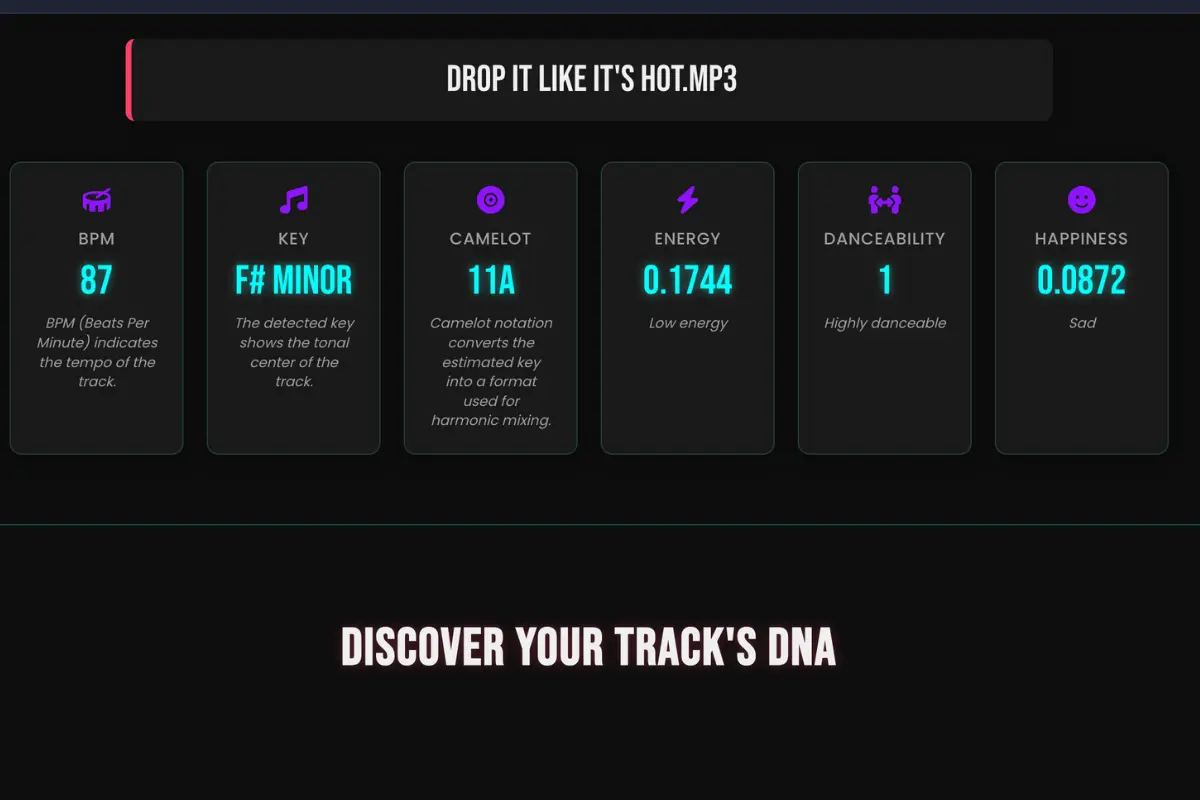The fastest and most powerful for AI-driven music tools
Our flagship frontier models are engineered to think deeper before responding—perfect for high-precision mastering, stem splitting, and vocal removal.
AI Mastering API
Our AI, Valkyrie, analyzes your track's sonic DNA to deliver a professional, streaming-ready master that respects your artistic vision and competes on every platform.
- Perfect for Spotify, Apple Music, Clubs, Live Events and more.
- Genre-specific intelligence for optimized results.
- High-resolution 24-bit WAV exports only.
- You also get Before/After AI analysis, a crisp vector waveform, and a full spectrogram breakdown.

AI Stem Splitting & Vocal Remover API
Isolate vocals, drums, bass, and instruments with incredible precision. Our AI Stem Splitter provides the cleanest audio separation available, perfect for creating remixes, mashups, or instrumentals.
- Cutting-edge AI separation with minimal artifacts.
- Clean stems: Vocals, Drums, Bass, Instruments (4-stem) or (6-stem) + Vocal/Instrumental (2-stem).
- Phase-aligned stems that drop straight into your DAW or DJ set.
- 24-bit WAV exports for pro-quality results.
- Models: Basic, Pro, Studio, Vocal Remover.

Song Key, BPM & Camelot API
Analyze any track and instantly detect the musical key, mode, BPM, and Camelot key—plus vibe scores for energy, danceability, and happiness. Perfect for DJs, playlist tools, and producer workflows.
- The Most Accurate key & mode (e.g., F# minor) with Camelot wheel label.
- Reliable tempo (BPM) with confidence and duration (sec).
- Energy, Danceability & Happiness scores in the [0–1] range.
- POST file upload or
audio_url; returns clean JSON.

Powering the Next Generation of API Driven Audio
We're constantly innovating. Get ready for new tools designed to supercharge your creative workflow.
AI Stem Splitter
Studio-grade masters in seconds.
AI Stem Splitter & Vocal Remover
The cleanest stem separation.
BPM & Key Finder
Instantly detect the tempo of any track with precision, saving you valuable time in your creative process.
AI Reel Maker
Automatically generate engaging, beat-synced video clips of your music for social media promotion.
Rap Lyric Generator
Trained on millions of tracks. Fresh lyrics for your sound.
Ready to Elevate Your Sound?
Sign up now and get free credits to try our entire suite of AI audio tools.
Create Your Free Account